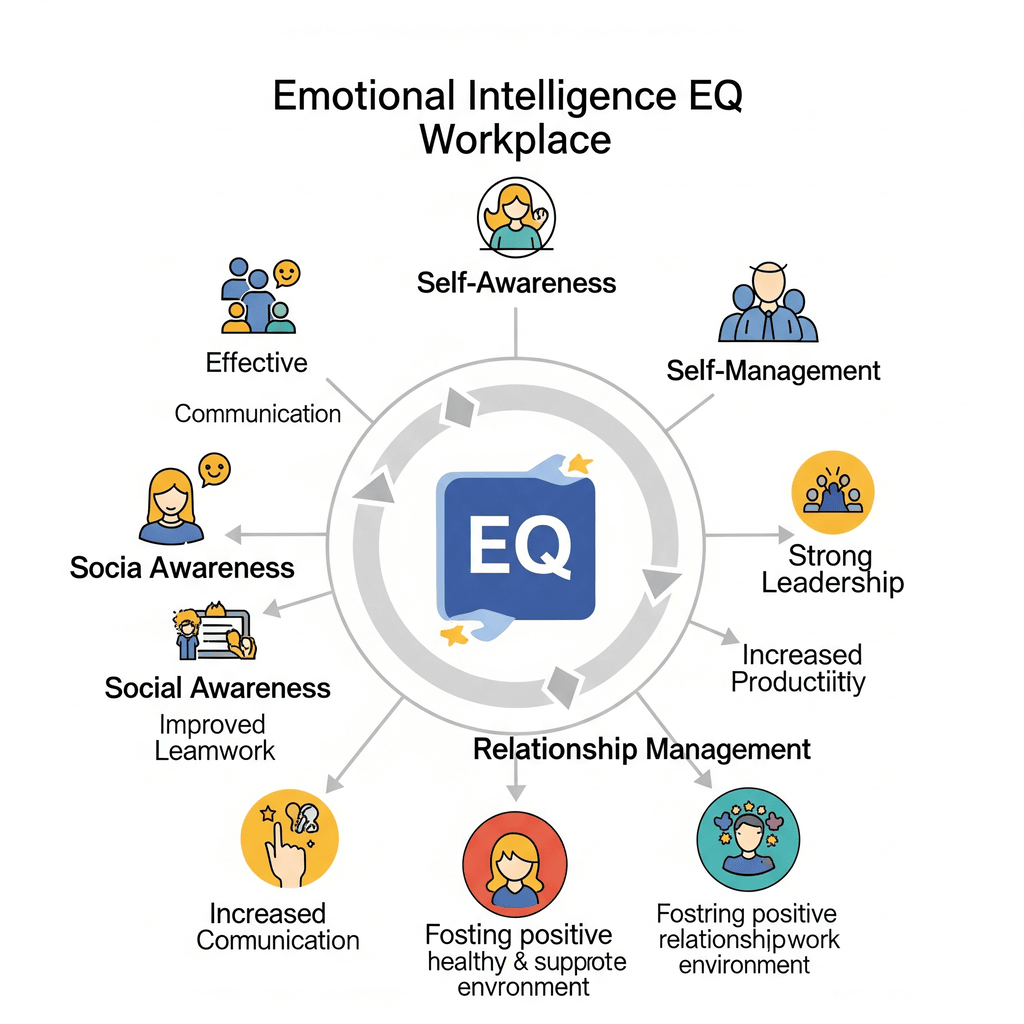Written by
mentorbuku
in
Social Skills, Self-Development, Business Psychology, Professional Soft Skills
Uncovering the Gap Between Logic and Social Reality
Analytical thinkers are known as outstanding problem-solvers, experts at unraveling tangled data, and adept at building solid, logical arguments. Ironically, however, amidst the tidal wave of information and in team-based workplaces, logical thinking alone is no longer enough to ensure personal and professional success. There’s a major “blindspot”: social skills.
Why do so many intelligent professionals find themselves caught up in conflict, friction during meetings, or feel disconnected from their teams? Is it true that logical abilities can actually backfire when navigating a social landscape full of emotional nuance and competing interests? If you’ve ever felt like an “alien” in a meeting or struggled to influence others without triggering defensiveness—you’re not alone.
This article serves as your gateway to understanding why social skills are key leverage for analytical thinkers, and beyond that, introduces three rarely-taught yet crucial pillars of social interaction skills. However, in the spirit of the “Strategic Teaser” philosophy, you’ll only find the “why” and the “what” here. For a concrete framework for implementation, there’s one critical step you’ll have to take at the end of this article.
First Pillar: Leaving the Complaint Zone—Adopting a Solution-Oriented Mindset
One of the most common traps for analytical thinkers is the tendency to focus on problems—analyze, critique, identify gaps, and then stop there. This often results in “spreading complaints” in the workplace. In fact, organizational behavior research shows that energy focused on complaints is not only unproductive but also lowers team morale and diminishes your personal influence.
However, the book “People Skills for Analytical Thinkers” offers a new perspective: Choose the harder—but more beneficial—path, which is to shift the habit of complaining into an active drive to improve situations. How is this done? It starts by activating the “rational brain”—also known as the “elephant rider,” capable of channeling emotional impulses toward constructive change. Is it easy? Of course not. But this is the hallmark of professional maturity and advanced social skills.
The full framework for transforming from complainer to problem solver is thoroughly dissected in this book, complete with case studies and reflective exercises. If you want specific guidance on how to resist the urge to complain and turn it into solution initiatives, the entire blueprint is available at MentorBuku, waiting for you to delve deeper…
Second Pillar: Managing Emotional Dynamics—“Riding the Elephant Within”
This illustration will feel familiar: you’ve crafted a logical argument, prepared solid data, but conflicts still arise in meetings. Why does this happen? Because in social interactions, emotions play the role of a large “elephant” not easily controlled by rational explanations alone. The book uses the “elephant and rider” metaphor: where the emotional brain often dominates, and the rider (the rational mind) must struggle to steer the “elephant.”
For analytical thinkers, understanding and managing this dynamic is at the core of advanced social skills. Emotions shouldn’t be seen as the enemy of logic but need to be leveraged to support your mission, goals, and long-term relationships. How do you recognize when the “elephant” is getting out of control, and what techniques calm it—both in yourself and others? The book delves into five main techniques and three common pitfalls that almost always appear when managing emotional interactions. If you want to turn conflict into collaboration and have your logic accepted rather than emotionally rejected, the key steps are available exclusively in MentorBuku’s summaries.
Advanced strategies, including internal dialogue and “reframing” techniques, are ready to be explored if you truly want to master the art of riding the “elephant” of communication…
Third Pillar: Honest Communication Without Damaging Relationships—Balancing Transparency and Diplomacy
One classic mistake analytical thinkers make is equating honesty with “brutal directness.” In reality, in dynamic environments, being too blunt can trigger defensiveness and damage trust. On the other hand, being too “subtle” can weaken your message and cause confusion.
The book “People Skills for Analytical Thinkers” emphasizes the importance of “constructively honest” communication—that is, having the courage to deliver tough messages while maintaining positive expectations and healthy professional relationships. You’ll be guided to explore a communication model that places transparency and empathy on opposite sides of the scale. Communication here is not just about delivering facts, but about effecting attitude change without causing resistance.
Precisely how do you construct honest communication that isn’t destructive? How do you differentiate between honest, confrontational, and manipulative communication? All the step-by-step illustrations, exercises, and real dialogues have been compiled into a practical guide in MentorBuku’s exclusive materials.
Three common mistakes that hinder open communication, as well as seven ready-to-use framework sentences for the workplace, are part of a secret toolkit you’ll only access once you become a member.
Fourth Pillar: Negotiating Boundaries Effectively—Preserving Your Core Energy
Often, analytical thinkers feel overwhelmed because they can’t say “no,” or get dragged into conflict for failing to set clear boundaries. This is the main source of chronic stress, overwork, and burnout in high-pressure professional environments. Assertiveness in social interaction—the ability to set boundaries clearly and gracefully—is a life skill that’s sorely needed.
How do you set boundaries without offending? What’s the “mini-negotiation” formula that earns respect for your boundaries, rather than provoking questions or pushback? The book explores several reliable strategies, from mapping personal energy zones to practicing micro-negotiations during meetings and projects.
However, the art of boundary negotiation is more than just saying “no.” There is a language pattern, timing, and response technique that you’ll only master by thoroughly studying the examples. Negotiation templates, conversation scripts, and personal reflection exercises to build your assertiveness muscle can only be mastered after exploring the full content on MentorBuku.
The most critical part of this process is included in the self-evaluation checklist and case simulations never taught in conventional training…
Conclusion: Daring to Go Beyond “Just” Smart, Toward Deep-Rooted Influence
This article may well shake up your old beliefs: that logical intelligence alone is insufficient to navigate the modern workplace. The key pillars of social skills—ceasing to complain, managing emotions, honest communication, and boundary negotiation—are absolutely vital assets for analytical thinkers. But don’t be mistaken: knowing the “what” and the “why” is only the beginning.
Consider the following analogy: You now have a treasure map, but only the overview. The real treasure—the action framework, transformative exercises, practical scripts, and case studies—is neatly stored behind a single gate of knowledge. Don’t be content to remain on the brink of discovery. It’s time to take a step further, and turn your social skills into your winning weapon.
This article is just the spark. To ignite the fire of your career or business transformation, you need the full fuel. Get unlimited access to hundreds of the world’s best book summaries you can consume in minutes. Start your journey by subscribing now at https://mentorbuku.com.

